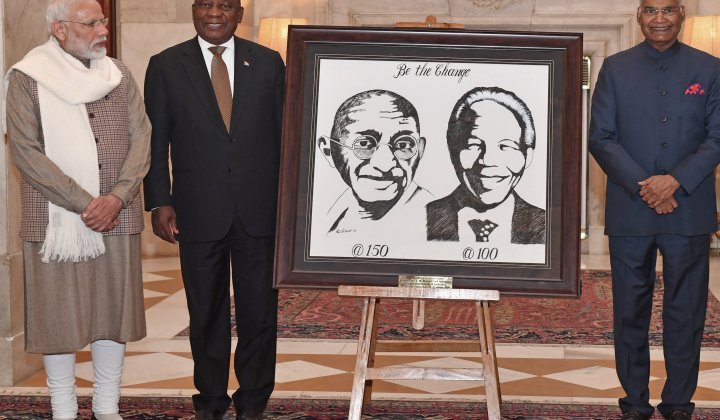White monopoly capital or just plain monopoly? Radical economic transformation or inclusive growth? In recent months, a pseudo-debate about what ails the South African economy, and potential solutions, has been taking place.
I call it a pseudo-debate because we now know that part of this narrative has been driven by a sustained campaign to divert attention from the looting of the state by a corrupt network of rentiers and to focus energies on a highly racialised debate about the economy. The culprits – the Gupta constellation of interests aided by the discredited public relations firm Bell Pottinger – thought they could get away with this because there is more than a grain of truth in their characterisation of the economy as dominated by a few companies which remain predominantly white owned.
Statistics on poverty also show that the country is still in the clutches of the patterns created by colonial and apartheid dispossession. Poverty is largely black, female, rural and young. South Africa is also one of the most unequal countries in the world. In recent times, inequality within racial groups has widened more than inequality between racial groups, but this does not take away from the wide gap between the typical white and black household.
Since 1994, in the face of a dire post-apartheid reality, the government has adopted a range of economic policy frameworks (from the RDP to GEAR to the NDP) and passed hundreds of laws to achieve redistribution, transformation and growth. Some of these laws and policies have been at tension with one another. A famous example is the tension between the laws passed to protect workers’ bargaining power over wages relative to the aim to export South African products in a global economy with stiff wage competition. In some areas, the policy and legislative framework has been problematic, with glaring gaps and poor guidance from the law. Take the case of land. Parliament has not passed legislation to recognise and protect security of tenure for many holders of ‘informal’ land rights, including farm dwellers. It has also advanced a version of customary law that favours traditional leaders over the consent of the people, an important feature of customary governance.
Government’s ability to effect change in the economy has also been hampered by poor implementation and weak systems of accountability. The poor performance of the education and health systems reflects government’s weak capacity and lacklustre oversight by Parliament.
It’s time for solutions. The hollow debate on radical economic transformation will not get us very far. The irony is that there is enough consensus on the ills facing the economy and the country. There is also a vision – well-articulated in the Constitution – of a society that frees the potential of every person. What’s left is the hard work of crafting and delivering on action plans that can get us there.
Business schools have a meaningful contribution to make in this crucial moment in the country’s history. The failings of implementation in the public sphere are not just about corruption. The post-apartheid project of building public institutions that serve the majority, based on an inherited system that was designed for a minority, is formidable. Add to that the desire to transform the economy from an extractive, enclave mode to one with equal opportunity. It then becomes clear that this is a task that requires the institution-building and management skills that reside in business schools.
It is no surprise that business school academics, save for a few exceptions, have not penetrated the core of the national policy debate. Most business schools do position their role as that of developing leaders not just for business, but also for civil society and government. They offer programmes to these institutions and some leaders in the public sector are business school graduates. However, the comfort zone for most business schools is to engage with problem-solving in the private sector.
Business schools need to embrace the unique role that they can play in taking the country to the next level. Their thinking can help to break institutional inertia and to bring innovation into the public sphere. They can help give substance and guide action that will help the country realise the values espoused by the Constitution.
“It’s time for solutions”






